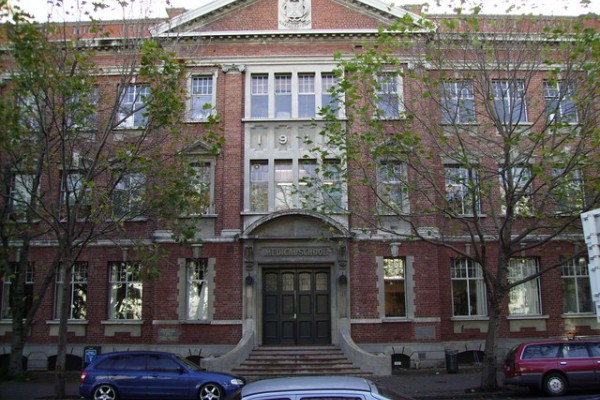Third year medical students’ exam results are being withheld after alleged cheating on the objective structured clinical examination (OSCE), making some students worried that everyone who sat the exam might be recalled to Dunedin to resit it.
In a letter sent out to third year medical students, Professor Barry Taylor, Dean of the Dunedin Medical School, said that “the integrity of the exam has been compromised” and that all results from this exam will be “withheld pending further investigation”.
The OSCE is a practical examination where students are tested on clinical skills at a range of stations. Because not all students can undertake the exam at once, they go through batches, with the groups not sitting the exam being held under observation.
However, apparently the groups were still able to be in communication with each other and the later groups were informed about the content of the exam. One student speculated that cell phones had been smuggled in and were used to communicate between the two groups.
One third year med student who sat the exam said that while “by the letter of the law it is cheating,” passing on information about the OSCE was accepted in the past as a fact of the exam, saying “It’s been like that forever”. They said that in the past markers just factored into their marks that later groups would have advance knowledge of what’s in the exam.
This year saw a concerted effort by the Medical School to stop this sharing of information.
The student said that the sharing of information was part of Med School culture. “From the beginning of Med School it’s drilled into you that ‘Med School is hard help each other out’”. The student also said that they “think the people who actually shared info are the ones who are the most dedicated to helping out their fellow med students”.
The letter from Professor Taylor to students called the alleged cheating “very unprofessional behaviour”.
“The Medical School has a duty to the public to ensure that students have achieved the appropriate level of competency at each stage of the course. It also has a duty to you as students to ensure that the examination process is fair and equitable. The public would also expect to see honesty within the cohort of future doctors.”
The letter also asked students who knew who spread the information to come forward, saying they have “a professional responsibility to inform the medical school what occurred and who was responsible”.
One of the students we spoke to said they were “definitely not gonna tell on someone”.
There’s a lot of concern, however, that if no one comes forward that all the students who sat the exam might have to return to Dunedin to resit it.
One student said “it is ridiculous to withhold everyone’s marks and threaten us with having to all do specials 'cause honestly most people found out about it in the holding area and were already prepared for the exam; it’s different from getting the answers to a multi choice question, you still need to be able to actually do the thing.”
Another of the third years said that they “don’t think anyone’s too concerned at the moment because we can’t quite believe they would actually spend all the money to make us resist the exam” but that if they do have to resit the exam they’ll be “pretty pissed off”.
OUSA President Caitlin Barlow-Groome said that OUSA "hope to see regular updates and resolve as a matter of urgency," but that "We cannot condone any means of cheating, and have to support the greater percentage of students who did the due diligence to sit the exam without any influence. We want to be able to graduate as students knowing our credibility is intact, especially within a field such as Medicine.”
OUSA encourages any and all concerned students to reach out to the executive, or email president@ousa.org.nz.
Professor Taylor said "the public should be reassured that the standard of Otago Medical School graduate has not been compromised. The nature of the examination means candidates cannot quickly learn the examined material to pass. Foreknowledge gives some advantage, but we think only a small advantage."







